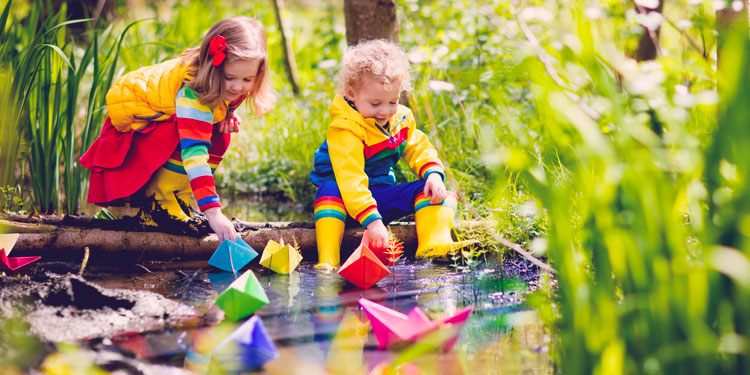The importance of 21st century skills is widely discussed as the future of working life has become less predictable. Learning varying skills for life itself is a better investment than focusing on certain academic subjects. According to Finnish principles, the holistic approach to teaching starts already from the early childhood education and care. The differences between the individuals are taken into consideration by guaranteeing a personal learning path for every child.
Holistic Approach
To better understand the Finnish early childhood education and care (ECEC) system, I interviewed the cheerful Sanna Lukander. She is the CEO of Fun Academy, a company offering pedagogical solutions in ECEC. They have chosen to base their Fun learning approach on holistic ideology.
“Holistic approach takes into account the child’s development in multiple areas”, describes Lukander. The idea is to teach children how to make sense of the world around them, identify and focus on their personal strengths and gear up for the future they will face. Every moment of a day from mealtime to tying shoelaces is an opportunity for little children to gain knowledge and skills. The aim is to raise independent, healthy and competent human beings who can thrive in the real world. As global issues, such as climate change, are influencing most societies in some level, it is crucial to understand the world also in a larger scale.
When talking about skills needed for the 21st century the focus is often on programming, coding and other technology related competences. But it’s equally, if not even more, important to highlight empathy and tolerance, and discuss how we can teach them in the modern world. Granting the children an opportunity to express their feelings and emotions in a safe environment teaches them skills needed in social situations. When emotional and social learning are emphasised from the young age children are more likely to thread through life with a tolerant attitude towards others.
Every Child is Entitled to Develop at Their Own Pace
Personal identity starts to form from the very beginning of an individual’s life. Some might form coherent sentences at age 2, others learn to walk before turning one, while other children may take a bit more time in reaching certain stages. These differences are usually balanced later on, and by then each child has also developed their individual interests and strengths. Although holistic approach aims to teach children a wide range of skills, the purpose isn’t to create a mass of clones. In Finland, every child is entitled to their own learning path where they are encouraged and supported if struggles arise.
Sometimes, when it’s a busy day and the class sizes are big it might feel impossible to see students as independent individuals, but children at schools shouldn’t be treated exactly the same. “Planning is a big part of it”, answers Lukander when asked about the approach Fun Academy has taken to assure every child is noticed. Planning the activities and schedules of each day helps with organisation. This, in return, gives the possibility to focus on getting to know the children and to have time for each and every one of them. Having some activities done in smaller groups helps also. But the most important thing is the teacher’s attitude, having an interest to face each child as an individual even in small moments. A child must feel the genuine presence of an adult which makes them feel safe and heard.
One way to encourage a child’s personal development is to have a “Genius hour”. It means that the children are given an opportunity to express themselves in an informal activity. The adults are still taking care of the safety, but the children aren’t given strict instructions to the activity. In addition to boosting the children’s self-confidence, this is also a good chance for the teacher to get to know the children while observing their interests when they are free to choose their activity.
It Takes a Village to Raise a Child
As we know, learning doesn’t happen only at schools and kindergartens. We learn about the culture, local habits, religion and history before we even step inside a kindergarten for the first time. As the old saying goes: It takes a village to raise a child. In this case, we include both the people and the environment as part of the village. We must pay attention to both as they both impact the child’s development.
For young children the group of people that influences their life the most, is relatively small. Adults and older children are usually the ones they look up to. Besides the parents, children are also influenced by their teachers. A good teacher can have a great positive effect on their students. That is why it’s crucial to empower the teachers and support their passion for teaching. In the end, positive results are seen in the whole village.
An ideal environment acknowledges the differences between children’s personalities. There are hiding places for children to have their own time and playgrounds where group activity can take place. “The term ‘environment’ must be understood to cover more than just the physical environment though. We must conceive it in a broader sense, as a place where it’s safe to ask questions and make mistakes. Learning is fun when we feel safe”, concludes Lukander.
Fun Academy is official partner of Polar Partners.
Written by Polar Partners’ Marketing intern Juliaana Kärkkäinen
